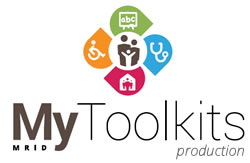SchoolKit Clinics offer a model for developing new strategies for the care and support of a child or young person with disability and complex health issues in a setting which is most convenient for the child and their family. It has been shown to be valuable in metro settings and may be particularly useful for those struggling to access the expert advice and assistance they need in regional and remote areas.
Involving a health team from a metro setting in a day of clinics at a regional school, for example, can be enormously valuable in providing families in those areas with access to specialist advice that may otherwise be unavailable to them.
While this possibility opens up a number of opportunities, establishing SchoolKit Clinics and running them on an ongoing basis in regional and remote areas may create a number of challenges for both school and health teams. This is especially the case where the key participants are based in different localities (for example, where a paediatrician and other specialists need to travel to visit a school, or where a consulting teacher from a school for specific purposes is brought in).
Visiting participants being unfamiliar with local service provision, such as educational, medical or disability-specific services available in a particular area, their organisational structures and lines of communication, may impact on the way a clinic is run and its effectiveness.
Adopting a consultative approach with the aim of building local capacity and providing educational support to key participants, rather than coming in and taking over, has proven a successful strategy for managing this situation most productively.
Lessons Learned – Two Case Studies
In the course of developing the SchoolKit Clinic model in partnership with Cairnsfoot School for Specific Purposes, and then piloting it further afield in the Illawarra district, the Metro-Regional Intellectual Disability Network has gained some experience about what works and what doesn’t in this regard.
Two examples are presented here as case studies which highlight some of the challenges that have emerged and the strategies used to address them.
At a school for specific purposes in regional New South Wales, school clinics were established to address the issue of improving the care of young people with significant health, behavioural and psychosocial needs. Coordinating transition to adult health services was also a priority.
Multiple meetings involving representatives from health, Ageing, Disability and Home Care (ADHC) and the school were held to discuss the reasons for holding clinics, processes and how the partnership was going to work. Clear identification of the responsibilities of all participants was made and clinics began.
Clinics in this school were based on a unique collaboration between New South Wales Health, Ageing Disability and Home Care (ADHC) and the Department of Education and Communities (DEC). The intention was to build local capacity by providing consultation and support. The responsibility for case coordination and follow up was shared between all three agencies according to the age of the child or young person involved.
Following changes to disability services, participation by ADHC in the clinic coordination and follow-up ceased after two years. Subsequently, the agreed protocols and processes proved more difficult to maintain.
This resulted in occasions where, unknown to the school, multiple clinicians (including other paediatricians and psychiatrists) became involved with the young person’s care, resulting in duplication of services.
This situation was managed by making changes to the intake process (i.e. communication with the family) to more clearly identify what clinicians might be involved in their child’s care. This was followed by much closer liaison with the family and their established specialists and clarification of clinic goals. These measures resulted in:
- Enhanced communication between the school and local clinician and clarity about management (with no school-based clinic required)
- The local clinician requesting involvement in a review at a school-based clinic (and providing past information, letters etc.)
As a direct result of this experience, a template letter was developed to explain the role of school-based clinics to local clinicians and to request what information they may have that would be relevant for consideration within the clinic context.
Despite these brief hiccups in the effectiveness of their delivery, and changes to staffing and local disability services, clinics have continued successfully in this school ever since.




